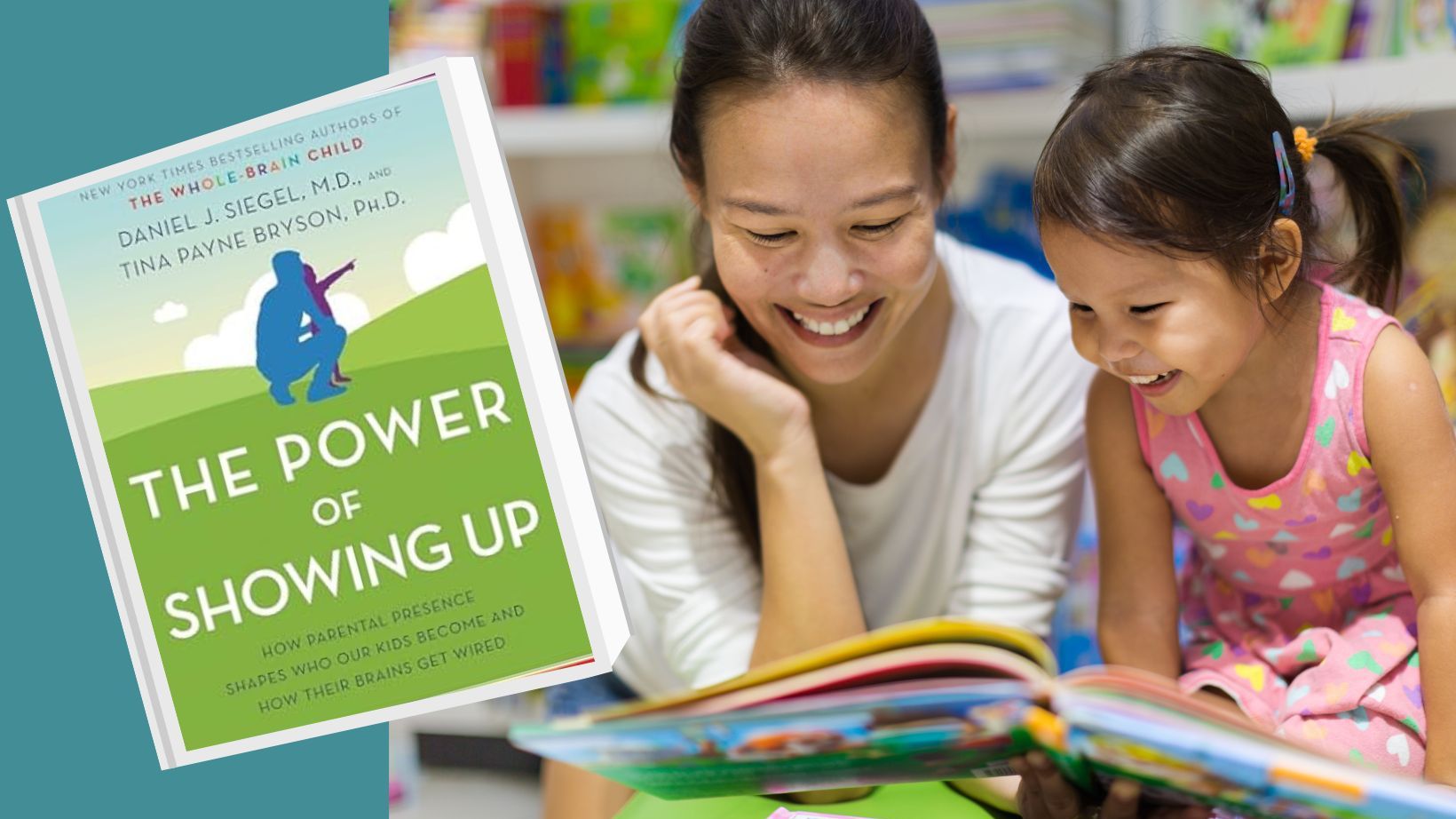The Power of Showing Up: Presence over Perfection 📖

As parents, we often carry the weight of “getting it right.” We wonder if we’re saying the right things, setting the right boundaries, or giving enough of ourselves.
The truth is, kids don’t need us to be perfect. What they need most is for us to show up and to be present.
In The Power of Showing Up, Dr. Dan Siegel and Dr. Tina Payne Bryson unpack how even small, consistent moments of connection have a lasting impact on a child’s brain, emotional development, and overall well-being. They remind us that the act of showing up—physically, emotionally, and relationally—is what helps kids feel safe, loved, and understood.
PEACE: A Simple Framework for Parenting
One way to think about showing up is through the acronym PEACE, which captures the qualities that matter most:
- Presence – Being physically and emotionally present with your child. That might mean putting away your phone, getting down on their level, or simply listening without distraction.
- Engage – Meeting your child where they are and responding with genuine interest. This could be joining them in play or really listening to the story they’re telling (even if it’s the fifteenth Minecraft update of the day).
- Affection – Offering warmth and love, whether that’s through words, a hug, or a simple “I’m glad you’re here.” Affection builds security.
- Calm – Children co-regulate with us. When we model calm in the midst of chaos, we teach them how to find calm within themselves.
- Empathic – Tuning into their feelings and showing understanding, even if we can’t fix the problem. Empathy says, “I see you, I hear you, and your feelings matter.”
Together, these elements create a sense of PEACE—for both parent and child.
Nurture Smooth: Soothing the Rough Spots
A theme woven throughout the book is how nurturing helps to “smooth” the bumps in a child’s emotional world. When children experience distress, frustration, or overwhelm, our calming presence can soothe and regulate their nervous system. Over time, this consistent nurturing teaches kids that even when life feels rough, they can return to a sense of stability and comfort.
This doesn’t mean removing every challenge—it means offering a steady, soothing presence that helps them move through difficulties with resilience.
Secure Attachment: The “Cushion” We Provide
Siegel and Bryson explain that secure attachment isn’t about never messing up. In fact, missteps are inevitable and even healthy when followed by repair. What matters is that our children know we are a cushion—a steady, safe base to return to when the world feels overwhelming.
When kids experience us as a cushion, they feel supported, secure, and ready to take on new challenges. When we push too hard, they may feel pressured or unseen. Balance comes from showing up consistently while allowing room for growth and independence.
The Ripple Effect of Showing Up
When we embody presence, engagement, affection, calm, and empathy, our kids internalize these experiences. They learn:
- I am worthy of love.
- My emotions matter.
- I can handle hard things with support.
- I am safe.
These beliefs don’t just shape childhood—they set the foundation for how our children approach relationships, self-worth, and resilience throughout life.
You Don’t Have to Get It Perfect
Showing up doesn’t mean being there every moment or handling every meltdown flawlessly. It means consistently being available, responsive, and attuned enough.
The beauty of this message is its simplicity: your presence is enough. Your child doesn’t need a perfect parent—they need you.
If you want to explore more, check out The Power of Showing Up: How Parental Presence Shapes Who Our Kids Become and How Their Brains Get Wired. It’s a comforting reminder that our daily, ordinary interactions have extraordinary power.

